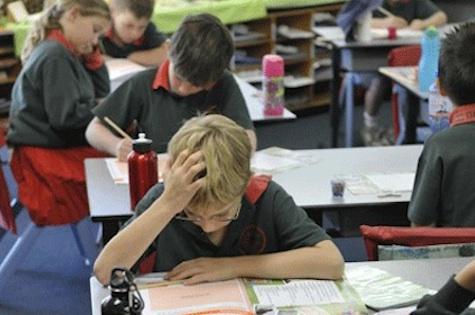The COAG Reform Council's latest reports on education and skills confirms what many already know according to two key stakeholders.
Both the Brotherhood of St Laurence and the Australian Education Union believe the reports show that some young people are doing it tough.
The reports' statistics show that while more than a quarter of 17 to 24-year-olds - a nationa average of 27% - are not working or studying full-time, it is a far bleaker picture for those from lower socio-economic backgrounds.
The Brotherhood of St Laurence's executive director, Tony Nicholson, said he shared the COAG Reform Council’s concerns that more needs to be done to help disadvantaged young Australiansget a job or further training after school so they are not left behind in the modern economy.
"It is scandalous that, as the report identifies, more than 40% of young people from the most disadvantaged backgrounds were not fully engaged in work or study after leaving school.’’
"Persistent gaps between socio-economic groups start from the earliest years in our education system and carry right through to tertiary levels.’’
''Much more needs to be done to bridge the education and skills gap. There is a real opportunity to address some of these pressing issues with the new schools'funding flowing through.’’
The President of the AEU, Angelo Gavrielatos, said that the first step for Education Minister Christopher Pyne is to commit to the ‘Gonski’ funding agreements.
“Like the Gonski Report before it, this report confirms an unacceptable link between poor student performance and disadvantaged backgrounds,” said Mr Gavrielatos.
“We defy Minister Pyne to read this report and conclude that educational disadvantage isn’t a definitive factor in student performance in Australia today,” said Mr Gavrielatos.
“If we want every child to access the opportunities of a great education, we need to ensure that resources for schools go where they are needed. We are seeing some gains in educational achievement, for example pre-school enrolment, early years literacy and numeracy, and Year 12 completion rates.
“But as this report recommends, we need to be making faster progress,” said Mr Gavrielatos.
The Brotherhood's youth spokesperson, Sally James, said that the young people she workswith in outer Melbourne often miss out on the help, support and networking advantages that those from higher socio-economic backgrounds receive.
''Investing in well-targeted support to help young people move from unemployment to workmakes good economic sense,'' she said.
''For early school leavers, I have seen that dropping out can lead to the start of a lifetime of joblessness, disadvantage and social isolation. It's really a case of investing now in education and training, or pay later. We want to see all young people reach their goals andmake a contribution to society.''
Ms James said there is clear evidence that demonstrates what works for getting people ready for employment: this includes learning work skills, being offered work experience or individual coaching.
“The longer that young people are out of work, the harder it is for them to find a job,'' she said.


















__small.png)










